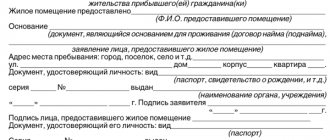Children are little people who also have rights and responsibilities to the state. True, due to his tender age, the child cannot be fully capable.
Some parents, having good opportunities, strive from their youth to provide their children with their own housing.
This article will discuss whether it is possible to register an apartment for a minor child in Russia, how this legal operation takes place in 2021, what are its features and difficulties, what are the advantages and disadvantages, and what is the easiest way to register an apartment for a son or daughter.
Why buy an apartment for a child?
One of the most popular reasons is to provide the child with their own housing . Parents think about this event in advance, preparing their child for a carefree life in the future.
Another reason why parents buy real estate for children is to prevent the emergence of controversial issues in the event of a divorce between father and mother.
When legal proceedings begin over the division of common property, the children’s property is not included in the division. And housing is not shared between former spouses.
And the rarest reason for registering an apartment for a child is to exclude claims to the property of third-party enterprises . For example, if financial obligations to creditors are not fulfilled.
What documents are needed
Documents required:
- donor's passport;
- birth documents or passport of the recipient of the gift;
- cadastral passport for real estate (obtain from the BTI);
- if there is no inventory value in the real estate passport, then an independent assessment of the real estate is necessary;
- excerpt from the house register;
- certificate of absence of debts for utility services;
- excerpt from Rosreestr;
- technical certificate;
- consent of co-owners of real estate for donation;
- consent of the guardianship authorities;
- consent of the child's representatives.
Documents for registering an agreement with the Registration Chamber:
- statements from parties to the agreement;
- donation agreement in triplicate;
- receipt of paid state duty;
All documentation is submitted in originals, only a package of copies must be given to the Registration Chamber. The child's representative certifies copies of documentation
Basic concepts and legislative framework
Before registering an apartment for a minor child, it is necessary to take into account age restrictions in the legal field:
- regarding Article 28 of the Civil Code of the Russian Federation - young children under 14 years of age;
- regarding Article 26 of the Civil Code of the Russian Federation - minor children from 14 to 18 years old.
According to the provisions of this legislative act, the rights of the child are formed . Young children are incompetent citizens and do not have the right to carry out any legal actions. His interests are represented by legal representatives, which include parents, adoptive parents, and guardians.
If we are talking about a minor child, then by law this young citizen is considered to have limited legal capacity. He can put his signature on documents, but in the presence and with the permission of his legal representative.
In the absence of the consent of one of the parents (guardians), the transaction or signing of the document will not be recognized as valid.
The legislative framework of Russia within the framework of the topic of registration of housing for a young or minor child is represented by the following legal acts:
- Article 35 of the Constitution of the Russian Federation - the civil right to own movable and immovable property;
- Article 17 of the Civil Code of the Russian Federation - protects the rights of all citizens, regardless of age, religion, gender, nationality;
- Article 131 of the Civil Code of the Russian Federation - indicates the need to register ownership rights to real estate;
- Article 128 of the Civil Code of the Russian Federation - protection of the rights to own any property that is not prohibited at the legislative level of the country;
- Federal Law “On State Registration of Rights to Real Estate and Transactions with It” No. 122 of July 21, 1997 - the document regulates the need to provide a certain package of documents for registration of property rights.
In the purchase and sale agreement, the minor citizen will be indicated as the buyer . But the agreement will necessarily contain the note “Represented by full name. legal representative."
Where to register?
The procedure is similar to the usual registration of transfer of ownership, but on behalf of the minor, the application is submitted by his legal representatives. Minors submit an application independently, but written permission from their parents is attached to it.
Do it through the MFC
In the absence of a department of the Federal Service for Registration of Law, Cadastre and Cartography, applicants can contact the Multifunctional Center. The registration period is 9 working days.
Through Rosreestr
The registration period directly with the cadastral authority is 7 working days. During this time, employees make decisions:
- on making an entry in the Unified State Register of Real Estate;
- on the return of documents to correct minor errors;
- about refusal of registration.
The procedure for alienating housing in favor of a child varies depending on the age of the minor. Parents or other legal representatives act on behalf of children under 14 years of age: they make decisions about purchasing housing, and they also sign.
Older children have the right to independently acquire real estate as their own, but this requires parental permission. Until they reach the age of 18 or undergo the emancipation procedure, children do not have the right to independently manage the apartment.
If you find an error, please select a piece of text and press Ctrl+Enter.
Features of registering real estate for a child
Transactions to register an apartment for a minor child are completely legal. There is no need to look for any workarounds.
There are several ways to register a residential property for a child:
- through the execution of a purchase and sale transaction;
- draw up a gift agreement with a notary;
- privatize a share or the entire area of the apartment in the child’s name;
- write a will for the children - but this method is not a full transfer of the apartment.
The procedure for registering an apartment for a child is considered in a special manner if the housing was purchased with a mortgage loan.
If the property was purchased from maternal capital, the children are necessarily the owners of part or all of the housing.
Stages of registration
Registration of an apartment for a minor child is carried out according to the standard procedure in accordance with the rules of Russian legislation.
The differences are that the procedures are carried out by parents or a representative. The documents themselves indicate the name of the owner - the child.
Stage 1
At the initial stage, it is necessary to collect and provide a package of documents, including:
- certificate confirming the right to own the property;
- consent of all owners, certified by a notary (if there are several planned owners of the apartment);
- an extract from the house register - to confirm the fact that there are no officially registered people in the given living space;
- a copy of the cadastral passport;
- extract from the personal account;
- certificate from the Bureau of Technical Inventory.
Stage 2
At the next stage, the purchase and sale agreement is signed. In the agreement, where the clause on the owner is stated, the full name must be filled in. buyer, that is, information about the child.
You also need to additionally fill in this column with information about legal representatives - parents, guardians, trustees.
The agreement is concluded in writing and then certified by a notary or real estate agent. The signing of the document is formalized by an act of acceptance and transfer of the property.
Stage 3
When the documents are in hand, you must pay the state fee . The package of documents is sent to the registration organization that processes real estate transactions.
After 30 days, legal representatives receive a certificate of ownership. But the child will be registered as a subject of law in the document.
Donation of an apartment
There are cases when housing is not bought, but given as a gift . A donation agreement is signed if the parents (legal representatives) decide to re-register their real estate to their minor children.
The donation of an apartment to the newly-minted owner occurs upon execution of a written agreement. Mandatory notarization is required.
If the deed of gift is drawn up not by parents, but by close relatives or friends, the registration procedure is similar to buying a home. It will be necessary to sign a gift agreement in which the representatives of the minor will be indicated .
After the agreement is endorsed, documents are collected according to the same list as when purchasing an apartment.
There are cases when housing is owned by several individuals. In this case, written consent for the donation of all owners will be required, so that in the future there will be no need to challenge the deed of gift.
The apartment can belong to both spouses. And they have the right to give them to their child. In this case, the consent of the second parent is not required. The documents are submitted to the authority that registers the application data. After some time, a certificate confirming ownership is issued.
How to legally transfer rights?
A minor can purchase an apartment in various ways. From purchasing with parents’ funds (or your own) to receiving as a gift or inheritance.
Registration of donation
In accordance with Art. 572 of the Civil Code of the Russian Federation, in a gift transaction, the donor transfers ownership of property to the donee free of charge. Previously, the gift agreement required state registration, but since 2013 it has been abolished.
As a general rule, one of the parents acts as the donee on behalf of the minor (a note to this effect is made in the agreement). A minor who has reached 14 years of age participates in the transaction independently.
If the donor and recipient are close relatives, the apartment will not be taxed.
Reference! The consent of the guardianship and trusteeship authority is not required when donating.
Purchase and sale
The purchase and sale transaction of an apartment in favor of minors is practically no different from a regular home purchase. For a minor, his parents participate in the transaction; minors over 14 years of age sign independently, and the DCP is accompanied by parental permission to complete the transaction.
How to make a will?
The will may indicate minors and even unborn children (if the testator, for example, knowing about his imminent death and knowing about the pregnancy of a relative or close person, indicated him as the recipient of the apartment). The inheritance must be entered into within six months after the opening of the will.
Registration of an inheritance intended for a minor is carried out by his parents. A minor from the age of 14 himself draws up an application to a notary to enter into an inheritance, but the parents must indicate in the document that they agree with the child’s decision.
Privatization
In accordance with the Law of the Russian Federation No. 1541-1 “On the privatization of housing stock in the Russian Federation,” children registered in the apartment subject to privatization must be participants in this procedure. Thus, a minor becomes a co-owner or sole owner if the other participants in the privatization wrote a refusal in his favor.
Important! A citizen who participates in privatization before the age of 18 has the right to participate in this procedure again after reaching adulthood.
Inheritance by law
Minors can also act as legal heirs. The algorithm for obtaining an apartment by legal inheritance is similar to a will.
Rights and responsibilities of parents
Any transactions and actions with real estate occur with the mandatory participation of legal representatives . Most often, the main activities and procedures are related to the payment of taxes for the use or ownership of property. In other cases, housing remains at the disposal of adults, but until the children turn 18 years old.
The apartment cannot be sold, exchanged, donated, leased, divided into shares, pledged, or bequeathed.
To legalize transactions of this kind, they will need to be agreed upon with the guardianship and trusteeship authorities . It is worth noting that obtaining consent from this authority will be quite difficult. A positive decision will be made only if the replacement is similar.
What does it mean? Perhaps there will be an opportunity to exchange living space for a larger one. All the restrictions stipulated by law are quite serious, so before initiating the procedure for registering an apartment for a minor, you should think carefully. It is almost impossible to return what was given to a child.
Who represents his interests?
In accordance with the norms of civil (Articles 26 and 28 of the Civil Code of the Russian Federation) and family (Article 64 of the RF IC) legislation, the interests of the child are represented by parents or adoptive parents, and in their absence, by guardians or trustees.
Parents automatically acquire the status of legal representatives from the moment the birth certificate is issued, on which their names are written. Adoptive parents also acquire this status from the moment the adoption certificate is issued.
If a child has no parents, guardianship or trusteeship is issued over him:
- A guardian is a person who has taken charge of a minor.
- Guardianship is issued for persons over 14 years of age.
To obtain one of these statuses you must:
- contact the guardianship and trusteeship authority;
- undergo an interview with representatives of the authority and submit a package of documents upon their request;
- obtain a certificate conferring the status of a guardian or trustee.
Without registration of guardianship or guardianship, grandparents, uncles and aunts, brothers and sisters or stepfathers and stepmothers cannot be considered representatives of the child, therefore, they do not have the right to enter into transactions on their behalf or give permission/prohibition for the acquisition of property.
Important! The absence of written consent of the legal representative entails the recognition of the transaction for the acquisition of an apartment as invalid.
When can you dispose of property?
Another important question arises: at what age can one own and conduct transactions with donated real estate?
Until the age of 14, housing is managed by legal representatives within the scope permitted by the state. Any actions are controlled by the guardianship and trusteeship authorities.
After the child turns 14 years old and until adulthood, the state allows transactions with housing, but with the consent of the trustees (parents, guardians, representatives).
A young citizen receives full right to dispose of property after he turns 18 years old . In some situations, exceptions are possible: the owner has the right to take procedural actions in the event of emancipation.
Emancipation is the process of a court recognizing a minor as legally competent. The court may take the teenager’s side if sufficient evidence is collected and presented to confirm his independence.
This happens when a young citizen is officially employed, has entrepreneurial activity, or has entered into a legal marriage.
Some nuances
Parents, having registered an apartment as their child’s property, need to remember that:
- Any transactions with real estate can only be carried out with the permission of the guardianship and trusteeship authorities.
- If a child acquires legal capacity before reaching adulthood, he will also become a full owner of the home.
As for the guardianship and trusteeship authorities, it is difficult to obtain permission from them to sell/exchange/donate/exchange an apartment - a thorough check is carried out, in return the child must receive similar property not only in technical characteristics, but also in cost, sanitary and hygienic condition.
Pros and cons of registering an apartment for a child
It is better to assess the advantages and disadvantages of registering housing as a child’s property in advance. We propose to consider the most obvious pros and cons of this event.
Advantages and disadvantages
The main advantage is related to material support . The process of registering a property for a young child is associated with numerous restrictions: the apartment cannot be sold, rented out, donated, bequeathed, exchanged, or left as collateral. The property remains with the legal representative.
But this is the main disadvantage of the procedure. If the parents’ plans have changed, their financial situation has changed, they will not be able to do anything with the donated property. Hypothetically, this is possible, but you will have to run around so much and endlessly write, ask, “virtuoso” that it won’t seem like much.
There is also the advantage that your child will own the apartment. Suddenly your family life has cracked, a divorce is coming. Your child's property will not participate in the division . This is convenient for the parent whose child is on his side. But in any case, the child certainly will not be offended.
Anything can happen in life. Sometimes real estate is arrested, seized by bailiffs, creditors, and police when parents are not in good standing with the law. In this case, justice is powerless in relation to the property of the minor representative of the parents who have violated the law.
Basic moments
It would seem, why does a minor become the owner of real estate? He will not remain on the street; his parents are obliged to support him financially. In fact, the reasons why the apartment is transferred to the child are quite banal:
- Parents want to protect property. For example, if there is a risk that the apartment may be alienated by the bank for debts.
- The issue of division of property during a divorce - such real estate cannot be divided because it is not owned by the spouse (formally) and cannot be alienated or sold - the guardianship authority simply will not give permission for this and there are no grounds for such operations at all.
- Confidence in providing for their child - parents will be confident that under any life circumstances their child will not be left on the street.
It goes without saying that we have given common reasons for this decision; in fact, there are more of them. In any case, according to Article 35 of the Constitution of the Russian Federation, a citizen receives the right to his own property from birth. The same thing is said in Article 17 of the Civil Code of the Russian Federation - civil rights, including property rights, are equal for everyone, regardless of age. This means that a minor can become the owner of real estate from birth. BUT - due to his age, or rather limited legal capacity, he cannot independently dispose of it as he pleases.
Features of buying an apartment for minors
This question torments many children with far-reaching plans: can a minor buy an apartment? Only a legally capable adult can purchase housing. At the same time, he can make even a newly born baby the owner.
The right to sign documents remains with the legal representative, and ownership remains with the child. The mother or father must be registered at the same address as the child for whom the apartment is being purchased.
There are other options:
- A minor can become the owner of real estate and register in it if his legal representatives (parents) are also registered there.
- Another alternative is for guardians to register in a residence owned by their child. The details of the execution of the purchase and sale transaction and the method of payment are important. If the apartment was purchased for cash, everything is simple. The child is listed as the buyer. His representative signs all the papers. Preparation of documentation is possible without a child. The main thing is to present a passport and birth certificate of the person under guardianship.
- When purchasing an apartment on credit, you must obtain approval from guardianship and trusteeship.
A child who becomes the owner of a property automatically comes under state protection . All further operations can be carried out with the approval of the guardianship council.
Categories of citizens under 18
Civil legislation divides the concept of “minor” into two categories.
| Children (0-14 years old) | Art. 28 Civil Code of the Russian Federation | Transactions on their behalf, except for small household ones, are concluded by legal representatives (parents or guardians). |
| Minors (14-18 years old) | Art. 26 Civil Code of the Russian Federation | Has the right to independently enter into transactions, but only with the written permission of the legal representative (parent or guardian). |
How does the state protect children from property loss?
The law is strong, but it's law. It covers every step. The state protects children in the maximum possible ways. Privatization guarantees the impossibility of depriving a child of property rights.
If minors who have not reached the age of majority at the time of privatization of housing are registered in the apartment, they still retain the right to part of the square meters, even if they are already the owners of other real estate.
Adults do not have the right to worsen the living situation of children . This means that you can sell an apartment owned by a child if you purchase more spacious and comfortable housing.
Inheriting an apartment
The right to inheritance arises in two cases:
- as a result of inheritance according to the order determined by law (Chapter 63 of the Civil Code of the Russian Federation);
- by will.
For a will to be valid, the document must be certified by a notary. However, in extreme cases, when this is impossible for objective reasons, the law allows certification by third parties:
- the head of the institution where the testator is located - the head physician, director of a nursing home, etc.;
- commander of a military unit;
- two disinterested witnesses.
It is worth considering that the law not only ensures a person’s right to transfer his apartment after death to a chosen person, but also protects the interests of disabled and minor heirs. Therefore, even if a person bequeaths an entire apartment, but after his death there will be a disabled spouse, a minor child or another dependent heir, they will receive at least half of the share that would have passed to them in the event of inheritance by law (Article 1149 of the Civil Code of the Russian Federation).
For example, the testator left an apartment to his adult daughter, but he also has a minor son. If, in the absence of a will, the son could claim half of the apartment, then after the will is executed he is entitled to a ¼ share. Moreover, in the opposite situation, when a will is drawn up in favor of a minor, infringing on the rights of other capable heirs, they will no longer be able to count on their share of the inheritance.
To refuse an inheritance, the decision of the child’s representatives alone is not enough. As in any case concerning real estate owned by minors, consent to this must be given by the guardianship authorities. As in the case of a donation, it is extremely difficult to obtain it, since it will be necessary to prove that receiving an apartment will harm the interests of the child.
If the will is made in favor of a child who is about to be born, ownership passes to him after birth.
Since a minor does not have the right to dispose of an apartment, when drawing up a will, a person can appoint trustees who guarantee the execution of the will. Often such concern for the interests of the child is unnecessary, since after the minor takes ownership rights, the legality of real estate transactions will be monitored by the guardianship authorities. Therefore, the situation when a minor heir loses the apartment left by the testator due to dishonesty or malicious intent is minimized.
Conceptual apparatus
Let's understand the conceptual apparatus before starting to discuss all the nuances and points.
Our question involves two fundamental definitions. One of them is a minor .
This concept means a person who has not yet reached the legal age of 18 years, and therefore cannot, due to age, have all the full rights and obligations.
A minor has his own representatives , who are obliged, before the subject reaches the desired adult age, to make decisions, respecting the interests of their ward.
The next equally important concept is donation . It means a two-way transaction. On the one hand, a person who is a donor .
It transfers real estate (or movable, depending on the subject of the agreement) to the second party and renounces its ownership rights to this property. The second party who accepts the gift is called the donee .
This participant in the transaction accepts the property free of charge and has the right to use, own and dispose of it as an owner. In general, these relations are regulated by the Civil Code.
Among other transactions, donation is reflected in Chapter 32. If you do not fully understand the principles of its implementation, you should refer to Article 572 of the Civil Code of the Russian Federation.
How to draw up an agreement to donate a share of an apartment to children? Sample.
Find out on our website about the procedure for registering part of the housing for a close relative. A sample contract for the donation of part of the housing can be found here.
How to donate your part of the apartment to children?
How to certify a deed of gift to a notary
It is required to notarize a contract when:
- common shared ownership is registered for the property;
- the contract is drawn up by a minor or incompetent (the consent of the guardianship authorities is required);
- The property is subject to joint ownership and is owned by the spouses.
It is not necessary to certify:
- if the right of sole ownership is registered on the property and the property is donated in full;
- if the right of common joint ownership has been formalized and the owners are not spouses;
- if the property is registered with the right of common shared ownership of legal spouses.
As a rule, notaries usually ask for more documentation than Rosreestr. Therefore, it is impossible to provide a clear list of documents. Thus, you need, first of all, to clarify the required list of documentation with a notary.
But in any case, copies of identification documents of the parties to the transaction, as well as legal representatives of the minor, and a package of documents for real estate will be required.
Features of the procedure
A donation agreement for real estate is concluded in writing. Oral transactions are void. The deed of gift is also subject to state registration.
Transactions on the alienation of a share in an apartment are subject to notarization.
Is alienation of jointly acquired property allowed? Yes. However, the consent of the co-owners will be required. For example, if the donor is married, the consent of the other spouse will be required. If the property is in common shared ownership, then consent to the alienation of a part is not required.
Is it possible to alienate property if a minor child is registered there? No. Such transactions are illegal. Before concluding a donation agreement, the baby will have to be discharged. A legally significant action is performed jointly with one of his parents.











